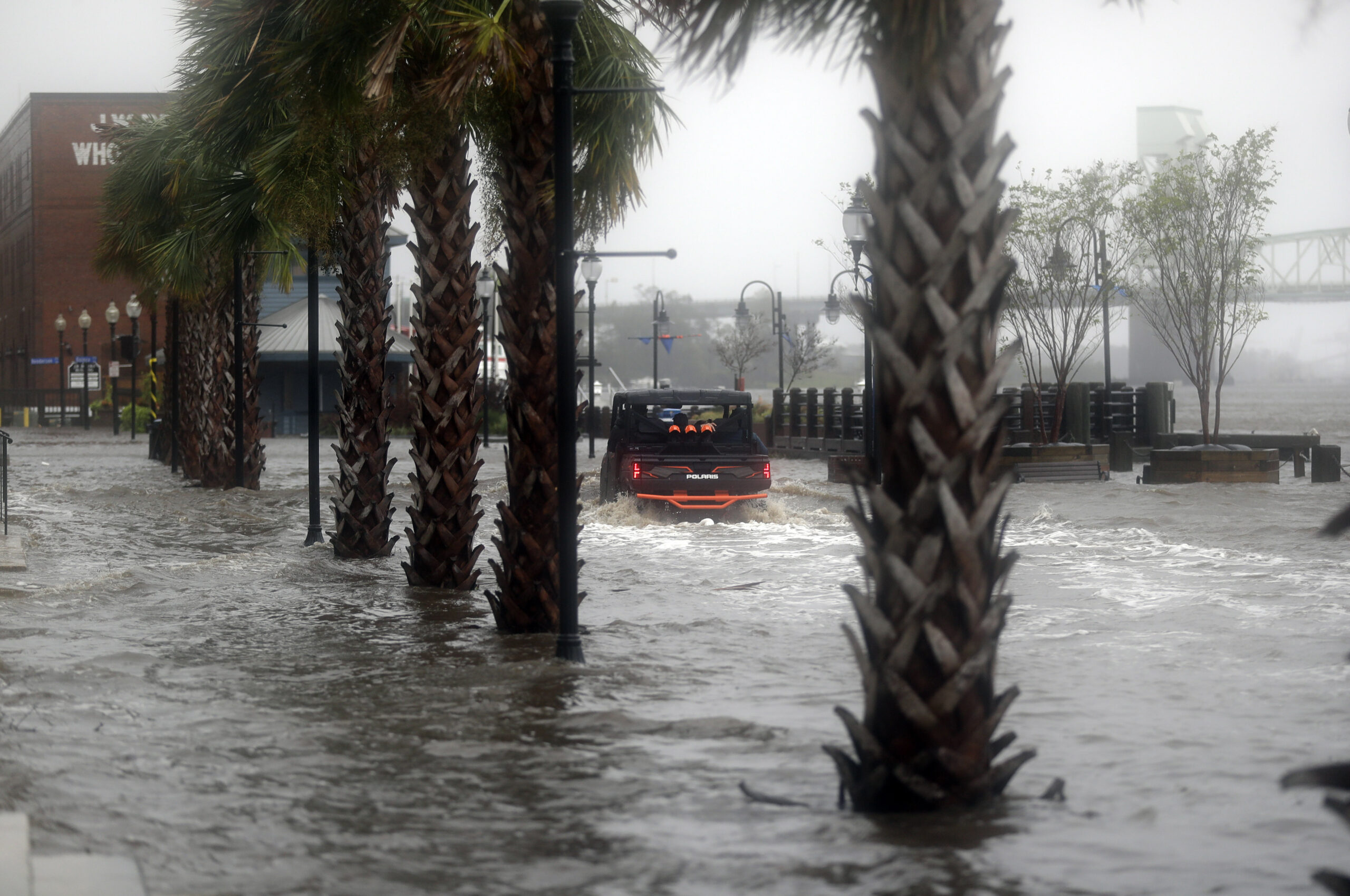Hurricane Florence Takes Toll On Low-Income Travelers

People drive an ATV through floodwaters on the riverwalk in Wilmington, N.C., after Hurricane Florence made landfall Friday, Sept. 14, 2018.
Chuck Burton / Associated Press
Hurricane Florence drove some evacuees from the Carolinas to seek refuge in Georgia this week.
Adrian Nez was one of them. His family, which includes his wife and three children, drove down from North Carolina. They’re staying in an Atlanta hotel and are excited to enjoy the city.
But, ultimately, he says the trip was all about his family’s safety.
“It’s just not worth messing with your life or your families life, regardless of what category the storm might be,” Nez said.
Nez also knows he’s lucky. He has a job in marketing and can afford to put his family up in a hotel while the storm blows over in his hometown of Wilmington, one of the first cities where Hurricane Florence made landfall.
But for low-income families avoiding Hurricane Florence will come at a higher cost.
“I’ve been through hurricanes before, but I can honestly say that evacuating this time has been harder than any storm,” said Ami Offenbacher-Ferris, who lives one hour away from Wilmington. “Mostly, for us, because of finances.”
If she only had to worry about herself, Offenbacher-Ferris said she wouldn’t have even made the trip. But she cares for her 6-year-old grandson and, like Nez, she wants to keep her family safe.
Offenbacher-Ferris said the drive from North Carolina took 14 hours in her motor home due to traffic, long gas lines and weather. She’s staying at Atlanta Motor Speedway, which is offering stays for dry campers. It’s one of many Atlanta businesses, including the High Museum and the offering discounts to evacuees.
Offenbacher said she appreciates the kindness, but, in the end, the trip will take a big financial toll. A friend is helping her foot the $20 fee a night to access water, power and sewers at the Speedway.
“I’m just tired,” Offenbacher-Ferris said. “I see why people stay.”
Still, she thinks of herself as one of the lucky ones. Now, her biggest concern is for the people in her community who couldn’t afford to make the trip — the people left behind.
It’s a familiar story. Following Hurricane Matthew, The Washington Post reported roughly 50 percent of households in the Coastal Plain of North Carolina live in liquid asset poverty, “meaning they don’t have enough savings to handle short-term expenses after a crisis.”
Offenbacher-Ferris said many in her community can’t afford to insure their motor homes or are simply too old to make the trip.
“People say ‘why didn’t that person leave?’…but in my neighborhood people live in RVs and the thought of losing that bit of what you own is overwhelming,” she said. “So I think sometimes people rather would be washed away than lose the little they have.”








